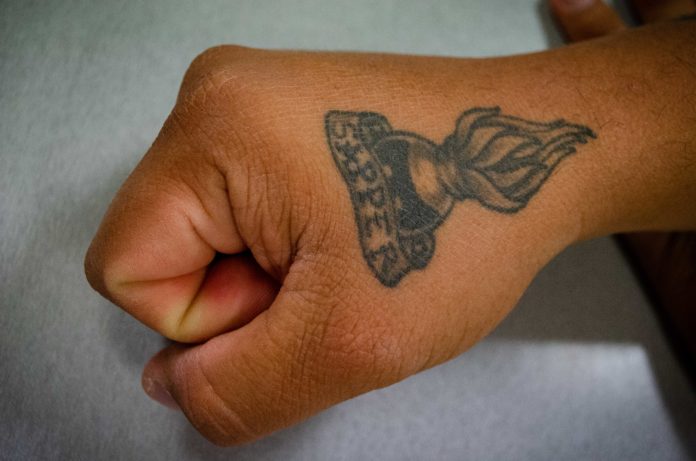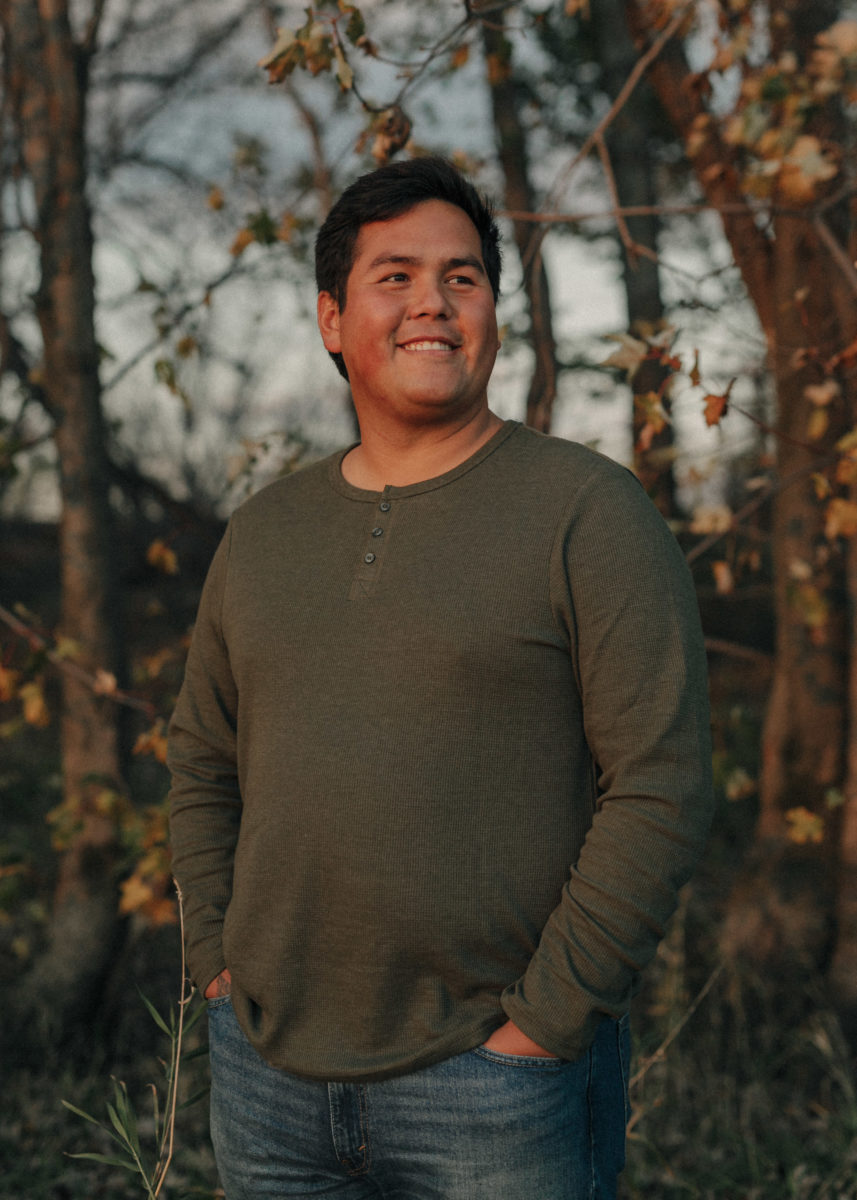

Desmond Simon has a tattoo on his hand of a torch with the word “Sapper” written beneath it. It comes from his time in the Canadian Armed Forces, where he served as a combat engineer. On his back, he has a tattoo of the Mi’kmaw word “Sma’knis” meaning “soldier.”
Simon joined up at a time when he felt his community of Elsipogtog First Nation was toxic. He felt a strong sense of negativity there and witnessed a lot of drug and alcohol abuse while growing up.
“I needed an out,” said Simon. “I just took whatever the first thing that came up was.”
After Simon graduated high school, he applied for the Aboriginal Leadership Opportunity Year with the Royal Military College of Canada. It’s part of a one-year joint program with the Regular Officer Training Plan.
Simon moved to Kingston, Ont., to attend RMC, but admits that he didn’t do well, so he applied for an occupation transfer and became a non-commissioned member. In 2014, he began serving as a combat engineer in the 4 Engineer Support Regiment at 5th Canadian Division Support Base Gagetown.
A friend of Simon’s had an interest in making skateboarding videos. Simon remembered becoming interested in skateboarding when he was younger and soon found himself wanting to make his own videos.
Thanks to the money he received in the military, he bought his first camera in 2015 and filmed his first video, a compilation of short clips about his day-to-day life.
There were explosions in snowy landscapes, a group of camo-clad soldiers and green army tanks driving through water and mud, and someone playing piano, with just their fingers visible. There were New Brunswick landscapes, fishing boats, dogs and people.
“I just took photos randomly and learned through mistakes,” said Simon.
When he retired from the military, Simon decided to pursue a full-time filmmaking career despite having no formal education.
“I had two kids and I spent eight years in the military. I knew what I wanted to do: I wanted to be a filmmaker, so I just fucking did it,” he said.
His first gig was at a wedding in 2018, but Simon didn’t consider himself a professional until 2020.
“That’s when I felt like I was good enough to put myself in the industry and say ‘I’m a cinematographer,’” he said.
On Indigenous Veteran’s Day, which took place on Nov. 8, Simon went to Kingsclear First Nation to film the ceremony there for a project he is working on about Indigenous veterans.

Simon loved hearing people sing and pray and smile.
“[By having a separate day], we can feel like we’re honouring ourselves the right way because we were never honoured by the government,” he said. “In my mind, it’s our way of honouring our veterans the way we want to.”
